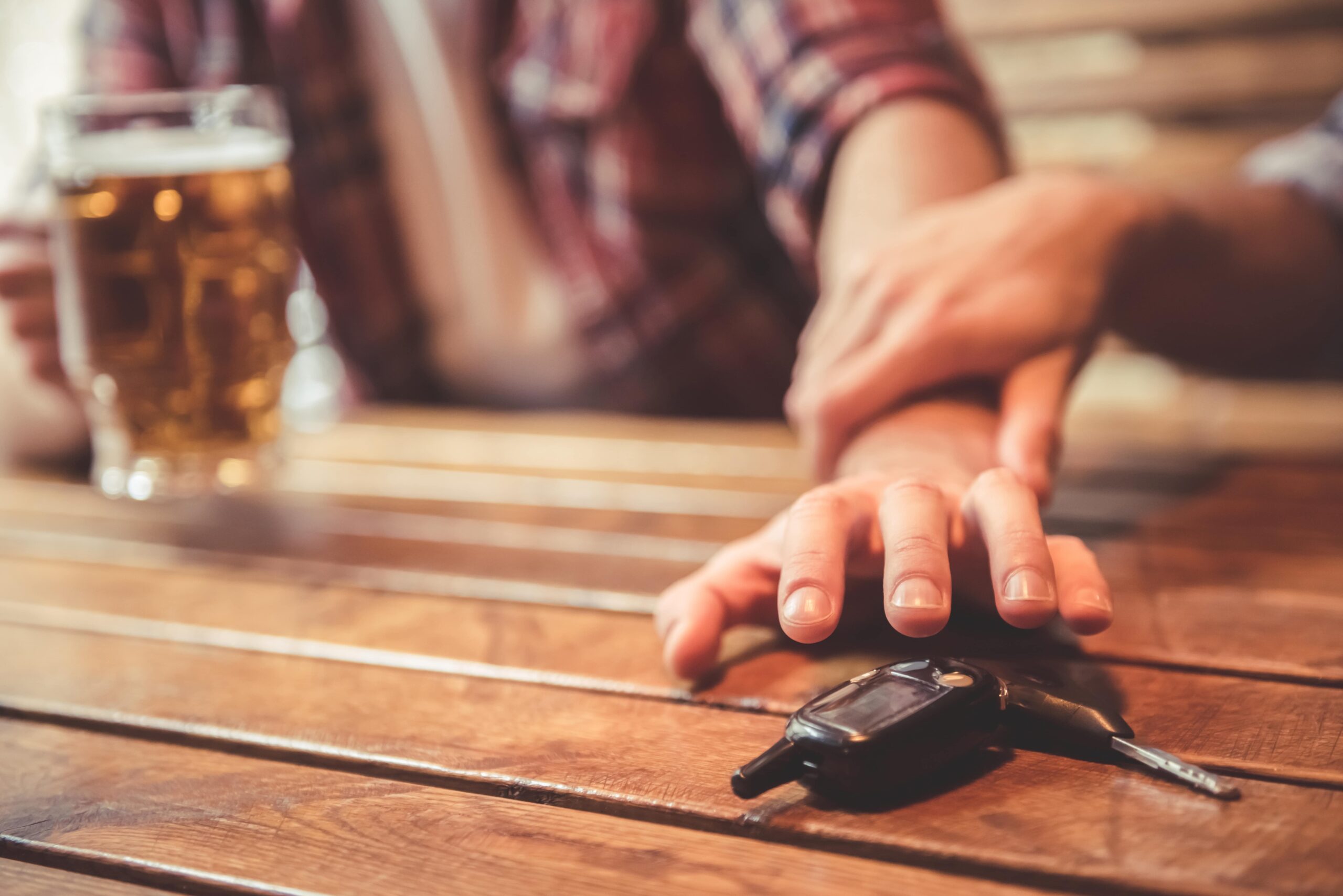Share This Article
In this article we discuss and outline drink driving section 10 laws. In particular we discuss what it means to get a drink driving charge dismissed under section 10 in NSW, and the restrictions on getting it before turning to the common question of whether a section 10 is possible for high range drink driving offences.
This article is a guide, and not to be replaced for legal advice. If you are seeking advice, we recommend you arrange a confidential consultation with our drink driving lawyers.
What is a Drink Driving Section 10 Dismissal?
A section 10 dismissal for drink driving is a type of non-conviction penalty that a Judge or Magistrate in court can impose on a drink driving offender in New South Wales. This results in the drink driving charge being dismissed leaving the offender without a criminal record.
A section 10 dismissal can be obtained in court after a person charged with drink driving pleads guilty. This type of non-conviction penalty can also be achieved in court, although less likely, if the court ends up finding the person ‘guilty’ after the person has pleaded ‘not guilty’ to the drink driving charge.
What Does Getting a Drink Driving Section 10 Mean?
A section 10 allows you to walk away without a criminal conviction. Consequentially, it also allows you to keep your driver licence. Putting it in another way, you end up avoiding a licence disqualification without any further penalty, not even a fine.
A Judge or Magistrate presiding over a drink driving case can impose a section 10 penalty on a drink driving offender if, in accordance with section 10 Crimes (Sentencing Procedure) Act 1999 (NSW):
- It will be expedient to discharge the offender without a conviction; or
- It will be inexpedient to punish the offender further, other than nominal punishment.
Can I Be Guaranteed a Drink Driving Section 10?
No one can ever guarantee to getting a section 10 outcome for a drink driving offence in court. If a lawyer promises this to you, then this is a red flag. A section 10 penalty order is discretionary and depends on many features and factors, some of those cannot be controlled or improved while others can be in order to maximise your chances at getting it.
How to Get a Drink Driving Section 10 Outcome in Court?
There are many things that a good drink driving lawyer can do to assist in maximising the chances at getting a section 10 outcome in court.
Firstly, you must find a lawyer who actually cares about you and your case enough to make the efforts required. Your lawyer needs to spend sufficient time on your case, to find out what essential evidence will be required in your case- in order to chase you up on materials or evidence that only you can obtain.
Some quick pointers on preparing to ask the court to give you a section 10 for a drink driving offence include the following:
- Explain any extenuating circumstances of the offence. This includes expressing to the court any features about your offending that takes it out of the usual or ordinary drink driving offence that the courts are used to hearing. This may include, you drove out of panic due to a medical emergency. Back it with evidence.
- Explain the extent of a need for your driver licence. Back it with evidence.
- Explain the impact of potential realistic effect of getting convicted (having a criminal record on your job). Back it with evidence.
- Explain whether you have any dependants who rely on you to drive and/or who rely on your income. Back it with evidence.
- Express any genuine remorse and insight. This needs to be expressed and you must not expect that the Judge will assume it.
- Have you any underlying mental health issues? If so, back it with evidence from a psychologist in the form of an expert report. There is always the concern that if the court is aware you have a mental health issue, then the court may refer and flag it with Service NSW who can cancel your licence indeterminately or until satisfied that you are not a harm to other road users. This is rarely done. Further, if your psychologist report shows you are making efforts to recover and are in the process of rehabilitation with good prospects of rehabilitation then it is very unlikely your licence will be cancelled, save severe mental heath concerns.
- Prepare a good character reference letter from 2-3 people each expressing different points important to your case. Avoid duplicating content that say basically the same thing across letters. Judges find this a waste of time and do not like it.
- By pleading guilty early enough, the Court will reduce your penalty by 25%, which brings you steps closer to getting a section 10. The later a plea of guilty is entered in court, the less that discount gets.
It is important to ensure your lawyer looks over each evidence and document that you intend to use in court. Once a document is handed up to the Judge in support of your case, it becomes evidence and generally cannot be reversed. The focus here is quality over quantity.
Section 10 Bond Drink Driving
A section 10 can be either a section 10 dismissal or a Conditional Release Order without conviction (CRO non conviction). The CRO non-conviction was once called a section 10 bond until the penalty laws changed it to now being called a CRO non-conviction.
A CRO order without conviction leaves a drink driving offender without a criminal conviction, and without a licence disqualification, but this type of penalty leaves a good behaviour bond for a certain period of time.
The good behaviour bond attached to the CRO non-conviction penalty requires the offender to be of good behaviour, not to commit further criminal offences during the term of the bond. The usual term of a bond is 2 years but can be less.
What Conditions are Included in a Good Behaviour Bond?
Some of the conditions of a CRO without conviction on a drink driving offender can include standard conditions (not to commit further offences and to appear in court if called upon to do so), in addition to additional conditions.
Additional conditions may include:
- Participating in a rehabilitation program if it can address a relevant concern such as mental health of alcohol addiction.
- Prohibition from drinking alcohol or other drugs.
- Prohibition from associating with a certain person(s).
- Prohibition from going to a particular place, or
- Condition to comply with supervision.
A court cannot impose a community service order, home detention or curfew (unlike the other types of penalties available).
Mid-range Drink Driving NSW Section 10
Whilst getting a section 10 in court for mid range drink driving is difficult and dependant on the features and circumstances of each case, it is not impossible. Going in with a well thought after and planned strategy significantly helps increases your chances.
Mid range drink driving occurs if a person drives a motor vehicle with a blood alcohol concentration of between 0.08g and under 0.15g. Importantly, the closer a reading is to 0.08g the greater the chances of a section 10, albeit not guaranteed. The Judge determining your penalty on sentencing you for mid range drink driving will look at all the above outlined features expressed under our heading “how to get a drink driving section 10 outcome in court?”.
Section 10 High Range Drink Driving
High range drink driving section 10s are very difficult and rare to get. But not impossible depending on your particular case and any extenuating features.
High range drink driving occurs if a person drives a motor vehicle with a blood alcohol concentration of at least 0.15g or more. the further away a reading is from that threshold, the even less chances there are of getting a section 10.
However, a main reason why section 10 is rare due to the guideline judgement on high range drink drivingwhich is important to know before going to court.
Drink Driving Penalties NSW Section 10
The drink driving penalties in New South Wales range from, in order of least serious to most serious- Section 10 dismissal, CRO non conviction, conviction and fine, Community Correction Order, Intensive Correction Order, and Full time imprisonment.
Restrictions on Getting a section 10 For Drink Driving
The only situation that a Court is prohibited from giving a drink driving offender a section 10 dismissal or CRO non-conviction is if the offender has in the past received a section 10 dismissal or CRO non-conviction for any one of the following types of offences within the previous 5-years (from the date the court determines your current drink driving offence), according to section 203 Road Transport Act 2013 (NSW):
- Drink driving.
- Drug driving (driving with illicit drug in your oral fluid, blood or urine).
- Driving or attempting to drive while under the influence of alcohol or drug(s).
- Menacing driving.
- Failing to stop and assist after impact causing injury or Failing to stop and assist after vehicle impact causing grievous bodily harm or death under section 52AB Crimes Act 1900 (NSW).
- Refusing or failing to submit to an alcohol or drug test.
- Altering concentration or amount of alcohol or drugs in your breath or blood.
- Negligent driving causing grievous bodily harm or death.
- Furious driving, reckless driving or driving at a speed or manner dangerous to public.









